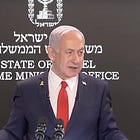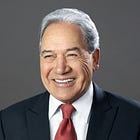Opposition Criticizes Government's Palestinian Recognition Plan Over Unmet Preconditions
Australian opposition leaders criticized the government's plan to recognize Palestinian statehood Tuesday, arguing essential preconditions remain unmet and warning the decision puts Australia at odds with its most important ally.
Opposition leader Angus Taylor told reporters the government is "putting the cart before the horse" by moving toward recognition without first securing the release of hostages held by Hamas, the militant group's demilitarization, and agreed borders between Israel and Palestine.
"The preconditions necessary for a lasting peace are not in place," Taylor said during a media conference. "Those preconditions have been clear for a long time. Release of hostages. Demilitarisation of Hamas. A commitment to peaceful coexistence and agreed borders."
Liberal Leader Sussan Ley joined the criticism in a joint statement, saying the Coalition has "serious concerns about the Albanese Government's decision to unilaterally recognise a Palestinian state outside of a proper peace and two-state process."
The opposition leaders argued the decision contradicts longstanding bipartisan positions and risks undermining ceasefire negotiations.
"Until today it has been a bipartisan position that the question of recognising Palestinian statehood should come at the end of the peace negotiation process, not at the start or during it," Ley said in the statement.
The criticism comes as Prime Minister Anthony Albanese's government considers recognizing Palestinian statehood, with officials arguing such recognition would isolate Hamas because the militant group opposes a two-state solution.
Taylor rejected that reasoning, saying he didn't hear the government making recognition conditional on meeting specific requirements.
"I didn't hear the government's commitment today being conditional," Taylor said. "I know there's things they want to achieve along the way, but I didn't hear it being conditional. And yet those preconditions haven't been met."
Truth matters. Quality journalism costs.
Your subscription to The Evening Post (Australia) directly funds the investigative reporting our democracy needs. For less than a coffee per week, you enable our journalists to uncover stories that powerful interests would rather keep hidden. There is no corporate influence involved. No compromises. Just honest journalism when we need it most.
Not ready to be paid subscribe, but appreciate the newsletter ? Grab us a beer or snag the exclusive ad spot at the top of next week's newsletter.
Ley warned the decision could undermine U.S. efforts to broker peace, citing comments from Secretary of State Marco Rubio that premature recognition decisions have "scuttled ceasefire talks between Israel and Hamas."
"This decision, at this time, puts Australia at odds with the United States of America, our most important ally, and the most consequential player in the conflict in Gaza," Ley said.
The opposition leader said the conflict began with "tragic and brutal attacks by Hamas on Israel and Israelis" on Oct. 7, 2023, and argued Australians want to see the current chapter of Middle East violence end.
"I think Australians have had enough. They want to see it come to an end," Taylor said. "But the preconditions necessary for a lasting peace are not in place."
The Coalition leaders accused the government of abandoning previous bipartisan consensus on Palestinian recognition timing.
"Until today it was a bipartisan position that there should be no recognition of a Palestinian state with Hamas still in control of Gaza," Ley said.
When asked about the government's insistence that the Palestinian Authority should govern a future Palestinian state, Taylor questioned whether Palestinian Authority leader Mahmoud Abbas has the authority to ensure all preconditions are met.
"Is he able to ensure that hostages are released. Has he agreed, along with the Israelis, to borders? Is he able to ensure that Hamas is fully demilitarised?" Taylor asked. "I don't think so."
Both opposition leaders warned that proceeding without meeting established preconditions risks rewarding Hamas for the Oct. 7 attacks.
"Frankly, the risk here is this is rewarding terrorism. It's not getting to a lasting peace, which we all want to see," Taylor said.
Ley argued the timing could deliver Hamas strategic objectives from its attacks.
"Recognising a Palestinian state prior to a return of the hostages and defeat of Hamas, as the Government has today, risks delivering Hamas one of its strategic objectives of the horrific terrorism of October 7," she said.
Taylor repeatedly emphasized that the preconditions he outlined are not new requirements but have been "widely agreed across the world and certainly in Australia" for a long time.
"These are not new conditions, probes, and this is why they are so essential," he said. "It seems to me the government is moving away from those being preconditions necessary for recognition of Palestine. And that is a big shift in the position of the government."
The opposition leaders acknowledged the tragedy affecting both sides of the conflict, with Taylor calling it "tragic for Israel, tragic for the people of Gaza and the Palestinians."
Ley questioned whether the government's decision would achieve stated objectives of ending the conflict and supporting humanitarian efforts.
"As it stands today the decision by the Albanese Government does not appear to make the world a safer place, expedite the end of the conflict, deliver a two-state solution, see the free flow of aid, support the release of hostages or put an end to the terrorist group Hamas," she said.
When pressed about Israeli Prime Minister Benjamin Netanyahu's military strategy, including reported plans to occupy Gaza and move into the West Bank, Taylor redirected focus to the recognition issue.
"The issue here that we're talking about is not the military strategy of Israel, it's the recognition of Palestine," Taylor said. "That's the issue I'm focused on."
Taylor confirmed current realities that complicate immediate recognition, noting that hostages remain in Hamas custody and the militant group continues to refuse recognition of Israel's right to exist.
"There are still hostages being held by Hamas," he said. "And it is clear there is not agreement on borders. It is clear there is not a recognition of Israel by Hamas. The preconditions are not met."
Ley emphasized that despite government rhetoric, the reality remains that "Anthony Albanese has committed Australia to recognising Palestine while hostages remain in tunnels under Gaza and with Hamas still in control of the population of Gaza."
When asked whether Australia should follow other international partners in recognizing Palestinian statehood, Taylor argued the focus should remain on outcomes that achieve lasting peace.
"What's reasonable is to focus on an outcome that is going to achieve lasting peace. And the preconditions necessary for that have not been met," he said.
The opposition leaders listed specific unmet conditions: hostage releases, Hamas demilitarization, recognition of Israel, and commitment to peaceful coexistence.
"The hostages haven't been released. Hamas has not been fully demilitarised. Hamas does not recognise the state of Israel. And we do not have any commitment to peaceful coexistence," Taylor said.
Taylor also addressed the potential impact on Australia's relationship with the United States, particularly regarding Prime Minister Albanese's hopes to meet with President Donald Trump later this year.
"The US relationship with Australia is unbelievably important to peace in our region, in the Indo-Pacific," Taylor said. "We want to see the Prime Minister meet face to face with the President to ensure that that alliance is strong into the future."
Ley warned that contradicting U.S. positions could complicate diplomatic efforts, noting America's "essential role to play in brokering a viable peace process and establishing a sustainable Palestinian state."
The opposition leader called for increased defense spending and proper funding for the AUKUS security partnership between Australia, the United Kingdom and the United States.
"We want to see a commitment to defence spending, getting to 3% of GDP, and we want to make sure AUKUS can live alongside an appropriate level of funding of the rest of our military capability," Taylor said.
Taylor criticized the current government's approach to defense spending and alliance management.
"Right now, that is not what's occurring, and it's time for this government to get this act together," he said.
The coordinated opposition response represents the clearest challenge to the government's evolving position on Palestinian recognition, setting up a potential political battle over Australia's Middle East policy and alliance relationships.
Foreign Minister Penny Wong reportedly briefed U.S. Secretary of State Marco Rubio on Australia's position, indicating the government is coordinating with key allies on the recognition decision despite opposition claims of diplomatic isolation.
The opposition's criticism focuses on procedural and strategic concerns rather than opposing Palestinian statehood in principle, with Taylor emphasizing support for "lasting peace in the Middle East."
"My support is for a lasting peace in the Middle East. That's my support," Taylor said. "My support is for the end of a tragedy, which began on October 7, 2023. And I want to see that come to an end."
Ley concluded that while "Australians all want the war in Gaza to end," the government's approach contradicts advice from Australia's most important ally that the decision "will not expedite that outcome."
The debate over Palestinian recognition comes as international pressure mounts for a resolution to the conflict that has claimed thousands of lives on both sides since the Oct. 7 Hamas attacks triggered Israel's military response in Gaza.
The Coalition's position reflects traditional diplomatic approaches that link recognition to concrete progress on security arrangements and political agreements between the parties, while emphasizing alliance coordination.
The government has not yet announced a final timeline for potential recognition, leaving room for continued political debate over the appropriate preconditions and process for achieving lasting Middle East peace.
Meanwhile, Western Australia’s only independent Senator, Fatima Payman, has welcomed the government’s decision to finally recognise a Palestinian state, saying it is an important step toward peace in the Middle East.
“Credit must be given where credit is due, and I would like to congratulate Labor for recognising Palestine and its right to exist as an independent state,” Senator Payman said.
She also paid tribute to the Labor Party members and union members whose unwavering resolve and persistent internal pressure moved the government to do what’s right and stand on the right side of history.
“This is a proud moment for all the brave Labor party members and unionists for their relentless pursuit of justice for the Palestinian people.”
But it is a bittersweet time for Senator Payman, coming almost a year after being forced out of Labor for supporting the same issue.
“Having to cross the floor to vote for such an important issue and then having to endure the resulting fallout from Labor and some in the community was one of the most stressful moments of my life, but it is terrific to know that Labor has finally caught up and that my move has been vindicated,” she said.
“I’m sanguine about it now because it has all turned out very well, and I am relishing my position and my platform as WA’s only independent Senator instead.”
“I am now in the wonderful position of being the only WA Senator able to put voters first and not have to toe a party line.”
“It’s been liberating and empowering, and I am certainly not looking back,” Senator Payman said.
She added that recognition is just the first step:
“Now we need sanctions on Israel, an end to the arms trade, full transparency in our trade relationships, and recognition of the Palestinian right to return. Only then can recognition be matched with the meaningful action Palestinians deserve.”
Got a News Tip?
Contact our editor via Proton Mail encrypted, X Direct Message, LinkedIn, or email. You can securely message him on Signal by using his username, Miko Santos.
As well as knowing you’re keeping Mencari (Australia) alive, you’ll also get:
Get breaking news AS IT HAPPENS - Gain instant access to our real-time coverage and analysis when major stories break, keeping you ahead of the curve
Unlock our COMPLETE content library - Enjoy unlimited access to every newsletter, podcast episode, and exclusive archive—all seamlessly available in your favorite podcast apps.
Join the conversation that matters - Be part of our vibrant community with full commenting privileges on all content, directly supporting The Evening Post (Australia)
Not ready to be paid subscribe, but appreciate the newsletter ? Grab us a beer or snag the exclusive ad spot at the top of next week's newsletter.










